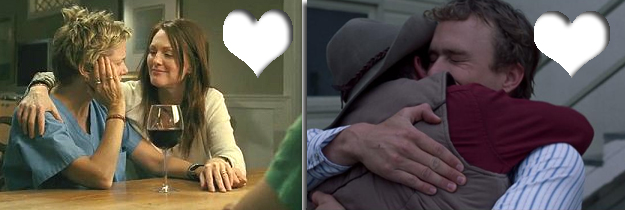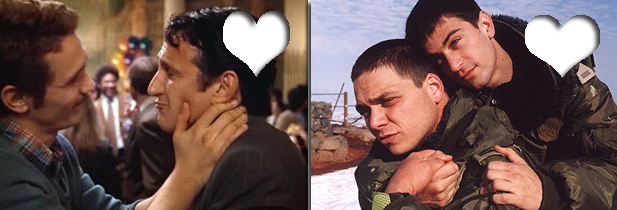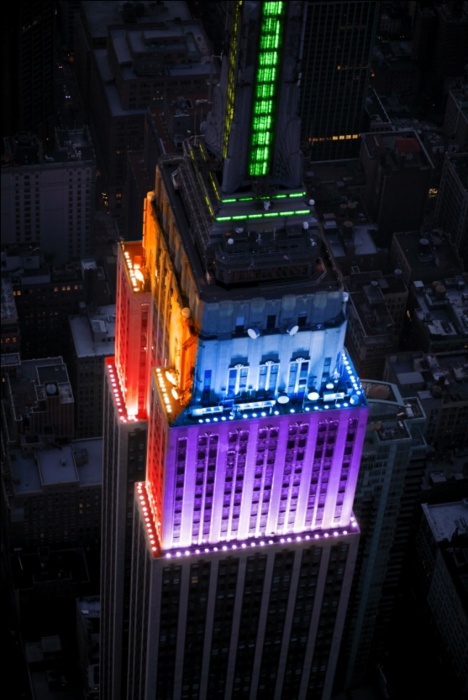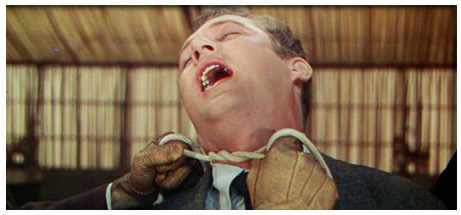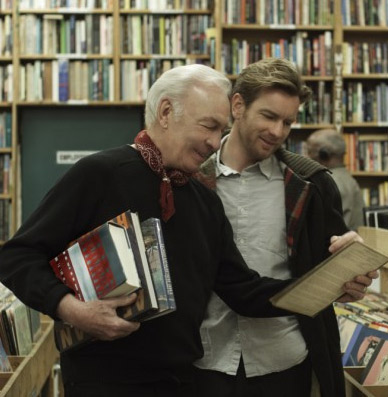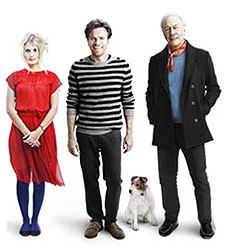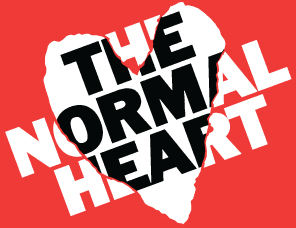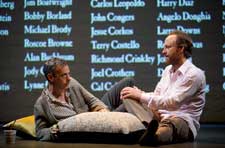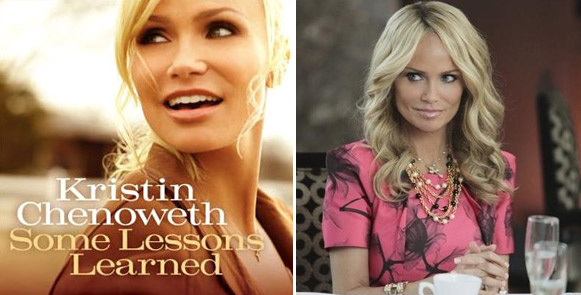This article was originally published in 2006 when I kicked off the Personal Canon Project but I'm trying to get all the articles back online. 'The 100 movies I most think about when I think about the movies.'
Rope (1948) Directed by Alfred Hitchcock | Screenplay by Arthur Laurents, Hume Cronyn, and Ben Hecht based on the play "Rope's End" by Patrick Hamilton | Starring: James Stewart, John Dall, Farley Granger and Cedric Hardwicke | Production Company Transatlantic Pictures and Warner Bros | Released 08/28/48
Hitchcock and the Continuous Shot
Alfred Hitchcock served as auteur-theory training wheels for me. I doubt I'm alone in this. Perhaps it's the confines of his chosen genre that throw his presence as a director into such unmistakable relief. Or maybe it's his celebrity, cultivated through that famous profile, press-baiting soundbites, celebrated fetishes, and television fame. But what it comes down to is this: when watching a Hitchcock film, even uneducated moviegoers, even movie-loving children can suddenly wake up to the notion of the man behind the curtain. Movies do not merely exist. They are built. The realization can be thrilling: Someone is actually choreographing this whole spectacle for my amusement!
And on the subject of choreography I give you Alfred Hitchcock's Rope. I gave myself Rope, actually, it being the first Hitchcock I sought on my own as a budding film fanatic. 'Let's see what else this man behind the curtain, this wizard, can do.' In this case what he could do was quite a lot. Though Rope obviously represented a complex coordinated puzzle for the filmmaking team, the plot is unusually simple. Two former prep school mates kill a third for the thrill of it (this is no spoiler, just the opening scene). They chase their "perfect murder" with a cocktail party to which they've invited the victim's loved ones.
The film's claim to fame for whatever meager fame it has managed --and I'd argue that that's disproportionate to the elaborately perverse buffet it serves up as well as its pivotal place in the director's career (first color film, first post-fame failure, second attempt at a confined space thriller, a form which would reap perfection for the auteur on his third attempt: Rear Window, 1954) -- comes from Hitchcock's formal experimentation. For Rope he uses one camera, one set and only nine actors. And then, here's the famous part: Hitchcock films it all in one continuous shot. Or thereabouts --there are five or six noticeable edits (and a few more I'm told) but why quibble? Jimmy Stewart's reliably grounding charisma aside, Hitchcock is Rope's true movie star and Rope's continuous shot is the mythmaking close-up. It just happens to be stretched across the entire 80 minutes.
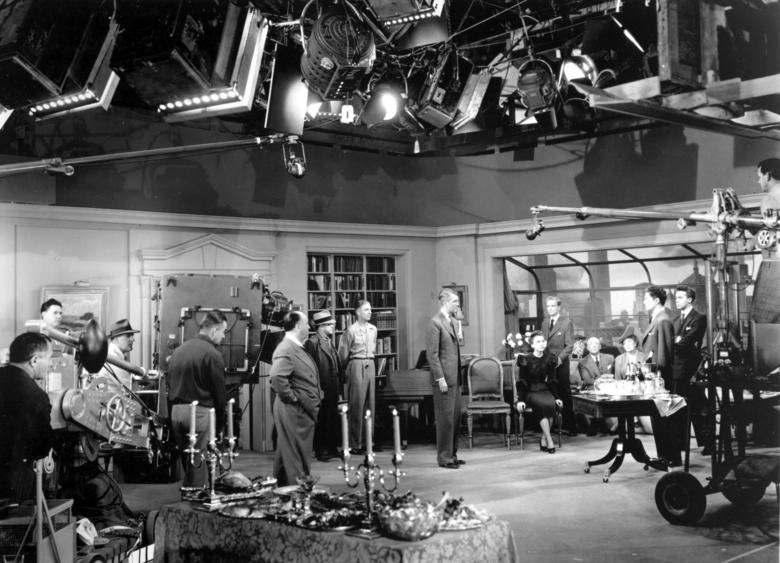 the soundstage filming of Rope
the soundstage filming of RopeThe continuous shot is not for the feint of heart. It requires mad auteurial skill and also, one could argue, exhibitionist tendencies: These days when we see lengthy tracking shots we're most likely looking at an opening sequence meant to show off (think The Player's smug Hollywood-mocking) or a climactic setpiece (Children of Men provides a strong example), but they're never demure filmmaking tools. Filmmaking without coverage, without the escape of "we'll fix that in the editing room" is a highwire act, much closer in spirit to live theater than regular old movie-making and as such, it feels expectant of your applause. The performers and crew must be perfectly in synch to pull this showmanship off. While Rope's technical bravado looks quaint when compared to a recent epic like Russian Ark, and its jaw dropping parade of a hundred extras, it isn't an entirely fair comparison. That art house hit doesn't have much in the way of plot points to navigate and it wasn't out to please the mainstream either.
To Hitchcock's credit, Rope never feels much like a stage play despite the lack of edits and its apartment set. It's too alive for that. It's a movie through and through. The director dresses it up in every possible way he can: the sound design is particularly smart, splitting the party into separate conversational layers. There's a great sequence with only one actor, the hired help, walking to and from the foreground cleaning off the living room chest cum coffin as the murderers and the guests continue their conversations. The amount of tension Hitchcock manages to build by doing so little is admirable. He also makes elegant use of music. Another great moment occurs in a conversation between James Stewart and one of the killers, with the canny use of a metronome to add to the time bomb effect of the deadly evening. Light is also put to clever mood-enhancing work by varying the amount the curtains let in, and allowing artifical light from neighboring signage to enter at crucial moments.
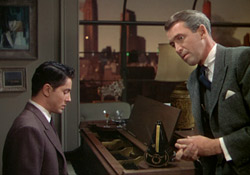
My point, though I meander is this: Hitchcock doesn't even need editing, one of the chief tools of movie making, to breathe life into his creation. Thrillers these days often use editing as a crutch, particularly sharp jagged cutting which serves as a shortcut to provoke fear in the audience. But it's really only disorientation and startled seat jumping that's achieved: this kind of fear almost never outlasts a movie. Once the lights have gone up, equilibrium is restored. Unless you carry a working strobe light around with you, your life has no jump cuts. Outside the theater the world is lived in one long continuous shot again. For my moviegoing dollar, there's nothing as enduringly disturbing as something you're allowed a good uninterrupted look at. Whether a film is traipsing in true horror territory: I think of "Bob" stepping over the couch --fully lit (!) --to strangle Maddy in
Twin Peaks or Samara emerging fom the TV in
Ring for one last murder, or working a psychological nightmare: I think of that hypnotic endless close-up of Nicole Kidman in
Birth, a woman on the verge..., nothing beats a movie that refuses to let you look away. Rare are the directors with the balls to say: This, and this alone is what you'll stare at. Though it pains you to look, this is what you'll see.
I hadn't watched Rope in a very long time and returning to it I found it sicker, funnier, and a bit sloppier than I remembered. Today it plays a little like an indie black comedy with a nasty dollop of winking gay panic. The relationship between the murderers is of the Leopold & Loeb school of evil homosexuals. Though this thriller was made in 1948, it could only read gayer if the men where shirtless or wearing leather harnesses.
This, for instance, is how the post murder scene plays out...
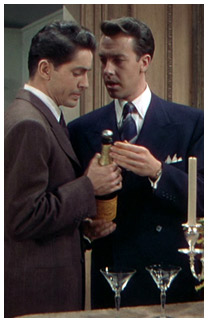
Two men, having just done the dirty deed, argue. The more aggressive man, Brandon, complains that they couldn't do it with the lights on, in the sunshine. His partner in crime, Phillip, has instant regrets. He could only do it in the dark. A cigarette is lit. More small talk and then they stand uncomfortably close together popping the cork (yes, really) on a bottle of champagne.
Phillip: [guilt-ridden] Brandon, how did you feel?
Brandon: When?
Phillip: During it.
Brandon: I don't know really... I don't remember feeling much of anything. [suddenly excited] Until his body went limp and I knew it was over!
Phillip: [trembling] And then...
Brandon: And then I felt...tremendously exhilarated. [Pause] H-h-how did you feel?
Dirty. Hitchcock, the mainstream's most reliably twisted auteur, clearly intends for this post-murder dialogue to double as post-coitus chatter. Sadly, Rope was neither the first film nor the last to casually demonize two of Hollywood's favorite targets: the homosexual and the intellectual. Both types, according to Tinseltown's ignorant mindset, are prone to acts of violence. Combine the two and bingo: You've got a serial killer! Rope is but one movie in a long chain of them, a continuous shot of Hollywood fear-mongering if you will, that shamelessly harness audience phobias of 'the other.' Even now, though, this troubles me less within the confines of a Hitchcock film than it would anywhere else. For let's be frank: What is any Hitchcock film without dark psychologies, sociopathic behavior, and sexual crises of multiple varieties?
When I was younger, most of Rope's sexual content slipped by me, anyway. The contact high I got from it was unrelated to adult naughtiness. It provoked no juvenile tittering. No, the thrills came from Rope's easy to grasp experimentation. I simply loved the gimmick. I caught another glimpse of the man behind the curtain. I still feel the same way when I watch it: give me more of this. Provide me with an uninterrupted supply of auteurs who want to challenge themselves. Give me more Hitchcocks, Von Triers, Haynes, Soderberghs. Experiment with the form. And then I'll feel... tremendously exhilarated.
 Friday, June 24, 2011 at 11:31PM
Friday, June 24, 2011 at 11:31PM 